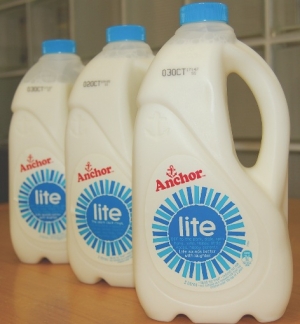House brands are cheaper and in the supermarket wars it isn’t the New Zealand farmer that is winning: house brands are more than twice as likely to be made from imported produce as market-leading brands.
A Campbell Live investigation, last month, urged shoppers to ‘Buy New Zealand’ wherever possible, but ‘possible’ depends on the concept of food price. New Zealand has very high animal welfare, human employment and environmental standards, and costs of production are therefore higher than in some other countries.
When supermarkets are trying to achieve market edge for their products, they source the cheapest production system. This could reflect climate and ease of growing, or it could reflect standards to do with animal welfare, human working conditions and/or environmental impact. Supermarkets also play suppliers off against each other. This is well known in respect of UK supermarkets and the New Zealand meat companies, but also occurs within New Zealand.
What the supermarkets say is that house brand products can be sourced in bulk, manufacturing is streamlined, R&D can achieve economies of scale, and marketing is easy – just one ‘brand’. But social media articles (see Michael Bracka, managing director of Freedom Foods, on Facebook) have indicated that supermarkets allow companies to undertake the expensive areas of product development, market awareness and initial market penetration with supply chain logistics. When the product is achieving traction, they will reduce distribution and sales while they launch their slightly cheaper ‘house’ brand.
The indication is that the supermarkets don’t have to bother about R&D as they let others do it for them.
Last year Coles supermarket in Australia stopped selling Mainland cheese. The reason given was their philosophy that 90% of food should be Australian. Nobody appears to have challenged the calculation – and though such things as chocolate, cocoa, coffee, rice are mostly (or entirely) not grown in Australia, the minute they are in a house brand they apparently count. Fonterra refused to repackage Mainland into a house brand.
Fonterra has indicated that the 21 brands currently in Australia will be reduced to four or five, and its 65 global brands will be trimmed. The cost of this to the Fonterra shareholders is considerable. Last year earnings in Australia before interest and tax (excluding the Western Australia dairy business) were down 15.9%. This year the half year (to January) net profit released at the end of March indicated that earnings before interest and tax from the Australia-NZ foods business were down 32% to $NZ98 million. The retail price war between Woolworths and Coles and increased competition from house brands has been blamed.
House brands are unlikely to disappear – they are part of what Fonterra terms ‘the new reality’. Last year Consumer New Zealand reported that supermarket house brands ‘slash grocery bills for the serious shopper’. Shoppers were sent out to buy 20 basic items from supermarkets in Auckland, Wellington and Christchurch, and saved 36%.
As households feel financial pressure, shoppers are likely to take the cheap options despite the fact that they say they want fair trade, and to know that the animals, humans and the environment are being treated with high regard. This shows the extremely high risk farmers face when being asked to produce to these high standards not imposed in other countries. It also shows the risk in putting money into creating new brands and products offshore rather than educating society and policy makers in New Zealand.
It isn’t just the drought that is putting farmers out of business.
• Jacqueline Rowarth is Professor of Agribusiness, The University of Waikato.

















